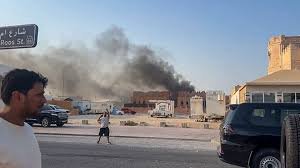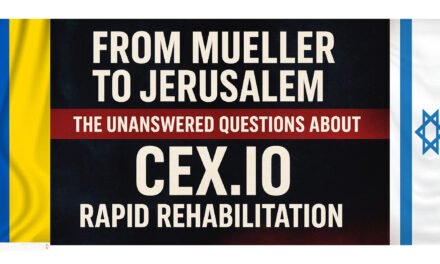On 9 September 2025, explosions rocked a guarded residential compound in Doha as an attack struck a meeting of senior Hamas figures based in Qatar. The strike killed several people — including lower-ranking Hamas members, the son of a senior negotiator, and a Qatari security officer — and came in the middle of delicate ceasefire and hostage-release negotiations in which Qatar has been a key mediator. Israel has described the operation as a “precise” action against Hamas leadership; Qatar, the United Nations, governments across Europe and the Middle East, and many international legal scholars described it as a flagrant violation of Qatari sovereignty and international law.
Which rules of international law appear to have been broken?
The central norm implicated by the Doha strike is the UN Charter prohibition on the use of force against the territorial integrity or political independence of any state. That prohibition, codified in Article 2(4) of the Charter and reinforced by decades of UN practice and jurisprudence, requires states to “refrain in their international relations from the threat or use of force” against other states except in very narrow circumstances. Absent Security Council authorization under Chapter VII, or a lawful exercise of self-defence under Article 51, unilateral cross-border strikes are unlawful.
Article 51 permits self-defence only in response to an actual armed attack and must meet the tests of necessity and proportionality; it does not authorize pre-emptive strikes inside a third state simply because a non-state actor is present there. International legal scholarship stresses that the Article 2(4) prohibition is foundational and that exceptions are narrow — forcible action can only be lawful if a genuine armed attack has occurred or the Security Council authorizes force. The UN’s legal repertory and independent analyses underline how exceptional and tightly constrained those exceptions are.
If the Doha operation was carried out without Qatari consent, Security Council authorization, or a clear, immediate, and necessary claim of self-defence against an ongoing armed attack emanating from the compound targeted, it would appear to violate Article 2(4) and customary international law. The UN Secretary-General explicitly condemned the strike as a “flagrant violation of the sovereignty and territorial integrity of Qatar,” signalling that the international community views the attack through this legal lens.
The pattern: extraterritorial assassinations and raids are not new
The Doha strike must be seen in the context of a long history of extraterritorial targeted killings and covert operations attributed to Israel (and carried out by other states), often followed by diplomatic shock but limited accountability.
Notable precedents include:
- Tunis, 1988 — the assassination of Khalil al-Wazir (“Abu Jihad”), a senior PLO figure, by commandos in Tunis. The killing prompted reactions at the UN and widespread condemnation as a breach of Tunisian sovereignty.
- Amman, 1997 — the Mossad’s botched assassination attempt on Khaled Mashal in Jordan, which led to a major diplomatic crisis and public exposure of covert action.
- Dubai, 2010 — the killing of Mahmoud al-Mabhouh in a Dubai hotel room; international investigations accused foreign agents of using forged passports and operating on foreign soil to carry out an assassination. The episode produced expulsions and diplomatic fallout but no judicial resolution at the international level.
These operations show a repeated pattern: decisive, unilateral uses of force in third-party states; immediate diplomatic uproar; and, often, little effective international remedy beyond condemnation and expulsions. The Doha strike follows that playbook — only this time it did so in the Gulf, against a country that has been an active mediator.
The uncomfortable role of the United States
The political dynamics around the strike deepen the legal and moral problem. The White House publicly said the U.S. was warned in advance and described the operation as “unfortunate,” while also stressing it was not a participant — a posture that, at minimum, raises questions about complicity, assistance, or tacit approval. Whether the U.S. merely received notification or actively enabled the operation, the result is the same: U.S. policy and posture have helped shield unilateral uses of force that flout international legal norms and undermine neutral mediation efforts.
From an accountability perspective, the U.S. role matters because states that provide intelligence, weapons, refuelling, or diplomatic cover may themselves be implicated in breaches of the prohibition on the use of force if their assistance makes the attack possible. International law on state responsibility and complicity in internationally wrongful acts addresses these issues; yet in practice such doctrines are rarely enforced against powerful states.
What world leaders said (highlights)
- UN Secretary-General António Guterres: called the strike a “flagrant violation of the sovereignty and territorial integrity of Qatar,” and urged renewed focus on a permanent ceasefire.
- United Kingdom — Keir Starmer: publicly condemned the strikes as violating Qatar’s sovereignty and warned the action risked further regional escalation, urging an immediate ceasefire and humanitarian relief.
- Spain: moved to impose or reinforce restrictions and publicly condemned the attack as a breach of international law, while expressing alarm at the consequences for civilian populations. (Spain’s recent measures and rhetoric have been among the strongest in Europe.)
- Qatar: labelled the operation “cowardly,” denounced the violation of its territory, and reiterated its role as a mediator; Doha has demanded accountability. Al Jazeera
- United States: the White House said it had been warned and called the incident “unfortunate,” with President Trump reportedly expressing regret over the location of the strike while stressing the desire to see hostages released. These statements stop short of condemnation and leave open questions about the degree of U.S. knowledge and assistance.
Where accountability should lie — and the likely outcome
Under the UN Charter, remedies for an unlawful use of force include Security Council action, investigatory or fact-finding missions, and referral to international courts — but all are politically fraught. The Security Council is unlikely to act decisively when one of its close partners is alleged to be responsible for the use of force, and ad-hoc fact-finding panels often struggle to secure cooperation. The pattern of past extraterritorial operations shows that even when violations are obvious, the international system rarely imposes legal punishments on states that wield power and strategic alliances. United Nations Legal Affairs+1
Yet the political costs are real: the strike has already invited broad diplomatic condemnation, risked derailing hostage and ceasefire negotiations, and escalated tensions across an already combustible region. For countries and institutions that uphold international law in principle, the Doha attack is a stark reminder that norms without enforcement mechanisms can be hollow.
Conclusion
Viewed through legal and historical lenses, the attack in Doha fits a familiar — and dangerous — pattern: powerful states carry out unilateral military actions on foreign soil to eliminate political adversaries, while governments that might otherwise enforce international rules offer limited rebuke. The result is predictable: short-term tactical gains for the attacking state, long-term damage to diplomacy, weakening of the UN-based legal order, and increased risk of wider conflict.
If international law is to mean anything, the Doha strike should trigger an immediate, impartial investigation — not only to establish the facts and legal responsibility, but to restore the idea that sovereignty and the UN Charter constrain even the most powerful states. The alternative is continued erosion of the rules that prevent small wars from becoming large ones.
Sources & further reading (selected): Reuters, AP, Al Jazeera reporting on the Doha strike and international reactions; UN Office of Legal Affairs on Article 2(4) and Article 51; historical reporting and UN records on the Tunis (1988), Amman (1997) and Dubai (2010) incidents.





